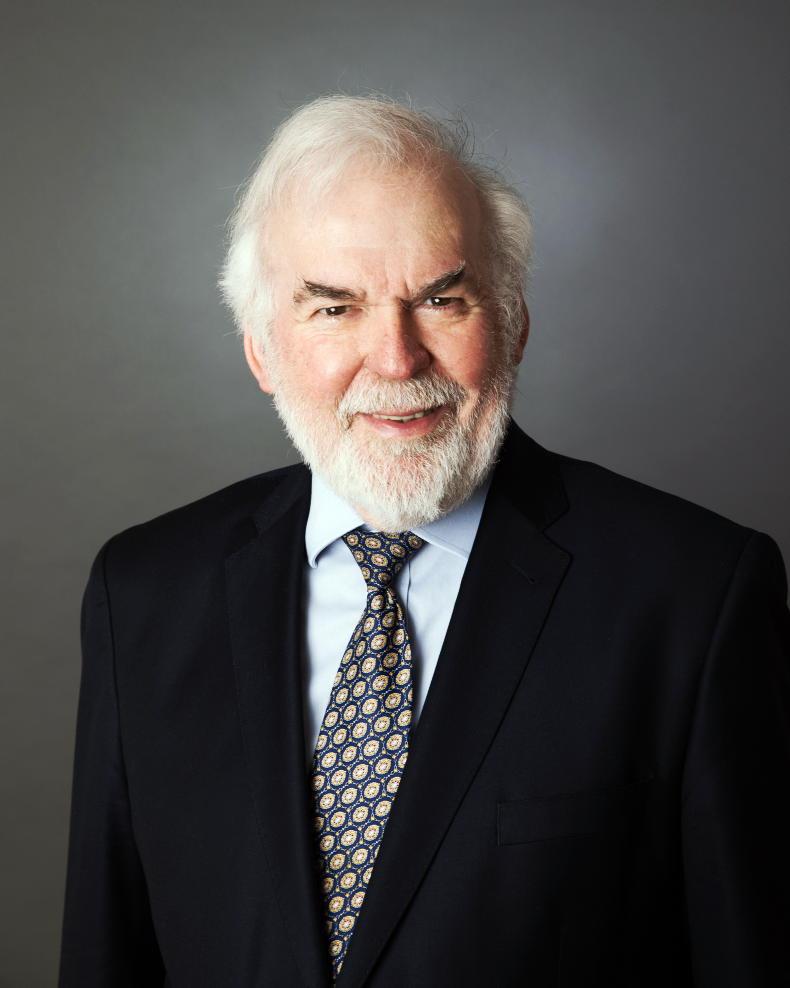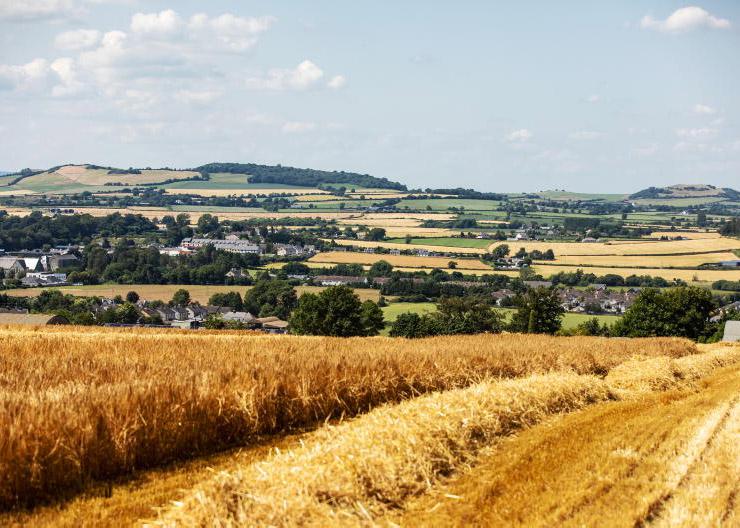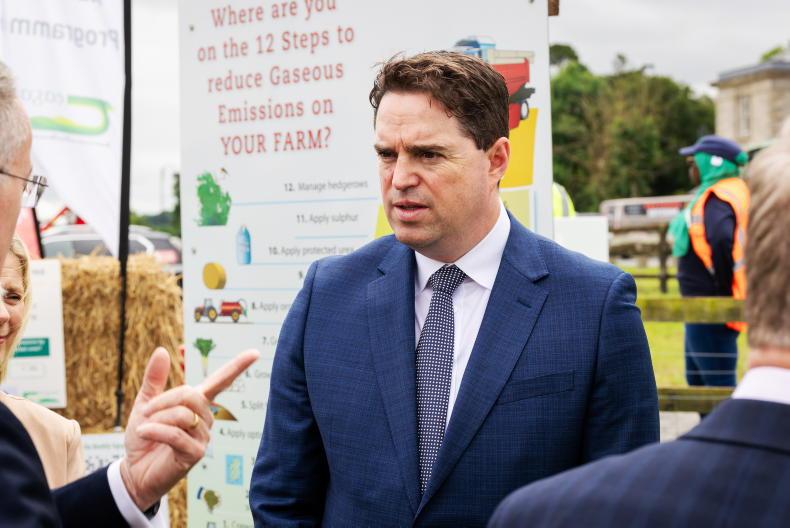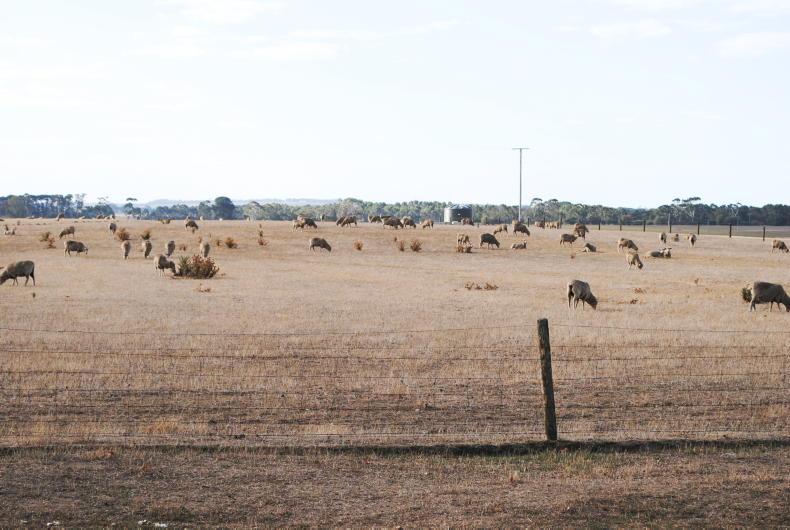Tom Arnold, who chaired the group that produced Food Vision 2030, says now is not the time to revisit the strategy because of the current uncertainty around food security in light of the war in Ukraine.
Instead, he is of the view that it should be looked at in a year or 18 months from now, when hopefully things have settled down and it is possible to reflect properly on how the world has changed since the strategy was finalised.
It would also be the appropriate time to review the progress made on delivery of the strategy, which he believes is “an entirely credible and relevant vision for this decade and everything that has happened since its publication confirms this”.
He also emphasises that the food systems model of the strategy is more valid than ever.
Food and nutrition security have to be achieved in the context of sustainable food systems and, for example, we now have to think more about how we can be less dependent on chemical fertilisers.
Immediate crisis
Arnold acknowledges the current Ukraine crisis and its consequences demand an immediate response and doing what is necessary to offset the loss of food supply.
The risk of hunger, particularly in Africa, as a result of the war is very real and the World Food Programme, Irish Aid and other non-governmental organisations are best placed to coordinate a response but will need support to do so.
Referring to an Organisation for Economic Co-operation and Development (OECD) price index graph between 1960 and 2020, spikes occurred with the oil crisis in the mid-1970s and again after the banking crisis and financial crash after 2008 but returned to a downward path afterwards.
This is another spike and, if previous patterns are repeated, there will be stability and then decline. This is what the Food and Agriculture Organisation (FAO) of the United Nations presented to G7 agriculture ministers recently with return to “normality” forecast around 2027.
Globalisation
When looking at long-term food price trends, Food Vision 2030 followed the OECD forecast template which doesn’t provide for shocks and we have had two major shocks in quick succession, with COVID-19 and the Russian invasion of Ukraine.
We have to win the argument that animal-source proteins have a critically important role in the diet, particularly for poorer people
The consequence of these, Arnold believes, is that we will “move towards a food production system less dependent on imports from elsewhere” and that there will be a “debate about the globalisation model for all products”.
His view is that this debate will lead “to a move towards more regional trading blocs”.

Tom Arnold, special envoy on food systems and chair of the Food Vision 2030 group.
When challenged that fertiliser was essential to feed an ever-growing global population, particularly in Africa and Asia, Arnold is strongly of the view that Africa needs to develop its own sustainable production systems and that while in a “short-term dimension really poor people need help directly,” in the longer term what is needed is “help for those countries to develop their own production capacity”.
This is where he believes that the leadership in food systems that underpins Food Vision 2030 comes to the fore. “Ireland can be a leader in sustainable food systems and the next generation of exports can be ideas, policies and services” that bring others along the way.
Managing production and the environment
Returning to the Irish dimension, Arnold was clear that production increase has to be managed within an environmental footprint and that diet and health are also an integral part of the food systems approach.
Unique position
On the issue of one-size-fits-all when it comes to targets for agriculture and failure to reflect the unique position of grassland countries, he is of the view that we need international alliances with countries like New Zealand that have a common interest.
“We have to win the argument at international level that livestock production, meat and dairy are entirely legitimate things.”
We also have to “win the argument that animal-source proteins have a critically important role in the diet, particularly for poorer people.”
Tom Arnold, who chaired the group that produced Food Vision 2030, says now is not the time to revisit the strategy because of the current uncertainty around food security in light of the war in Ukraine.
Instead, he is of the view that it should be looked at in a year or 18 months from now, when hopefully things have settled down and it is possible to reflect properly on how the world has changed since the strategy was finalised.
It would also be the appropriate time to review the progress made on delivery of the strategy, which he believes is “an entirely credible and relevant vision for this decade and everything that has happened since its publication confirms this”.
He also emphasises that the food systems model of the strategy is more valid than ever.
Food and nutrition security have to be achieved in the context of sustainable food systems and, for example, we now have to think more about how we can be less dependent on chemical fertilisers.
Immediate crisis
Arnold acknowledges the current Ukraine crisis and its consequences demand an immediate response and doing what is necessary to offset the loss of food supply.
The risk of hunger, particularly in Africa, as a result of the war is very real and the World Food Programme, Irish Aid and other non-governmental organisations are best placed to coordinate a response but will need support to do so.
Referring to an Organisation for Economic Co-operation and Development (OECD) price index graph between 1960 and 2020, spikes occurred with the oil crisis in the mid-1970s and again after the banking crisis and financial crash after 2008 but returned to a downward path afterwards.
This is another spike and, if previous patterns are repeated, there will be stability and then decline. This is what the Food and Agriculture Organisation (FAO) of the United Nations presented to G7 agriculture ministers recently with return to “normality” forecast around 2027.
Globalisation
When looking at long-term food price trends, Food Vision 2030 followed the OECD forecast template which doesn’t provide for shocks and we have had two major shocks in quick succession, with COVID-19 and the Russian invasion of Ukraine.
We have to win the argument that animal-source proteins have a critically important role in the diet, particularly for poorer people
The consequence of these, Arnold believes, is that we will “move towards a food production system less dependent on imports from elsewhere” and that there will be a “debate about the globalisation model for all products”.
His view is that this debate will lead “to a move towards more regional trading blocs”.

Tom Arnold, special envoy on food systems and chair of the Food Vision 2030 group.
When challenged that fertiliser was essential to feed an ever-growing global population, particularly in Africa and Asia, Arnold is strongly of the view that Africa needs to develop its own sustainable production systems and that while in a “short-term dimension really poor people need help directly,” in the longer term what is needed is “help for those countries to develop their own production capacity”.
This is where he believes that the leadership in food systems that underpins Food Vision 2030 comes to the fore. “Ireland can be a leader in sustainable food systems and the next generation of exports can be ideas, policies and services” that bring others along the way.
Managing production and the environment
Returning to the Irish dimension, Arnold was clear that production increase has to be managed within an environmental footprint and that diet and health are also an integral part of the food systems approach.
Unique position
On the issue of one-size-fits-all when it comes to targets for agriculture and failure to reflect the unique position of grassland countries, he is of the view that we need international alliances with countries like New Zealand that have a common interest.
“We have to win the argument at international level that livestock production, meat and dairy are entirely legitimate things.”
We also have to “win the argument that animal-source proteins have a critically important role in the diet, particularly for poorer people.”










SHARING OPTIONS